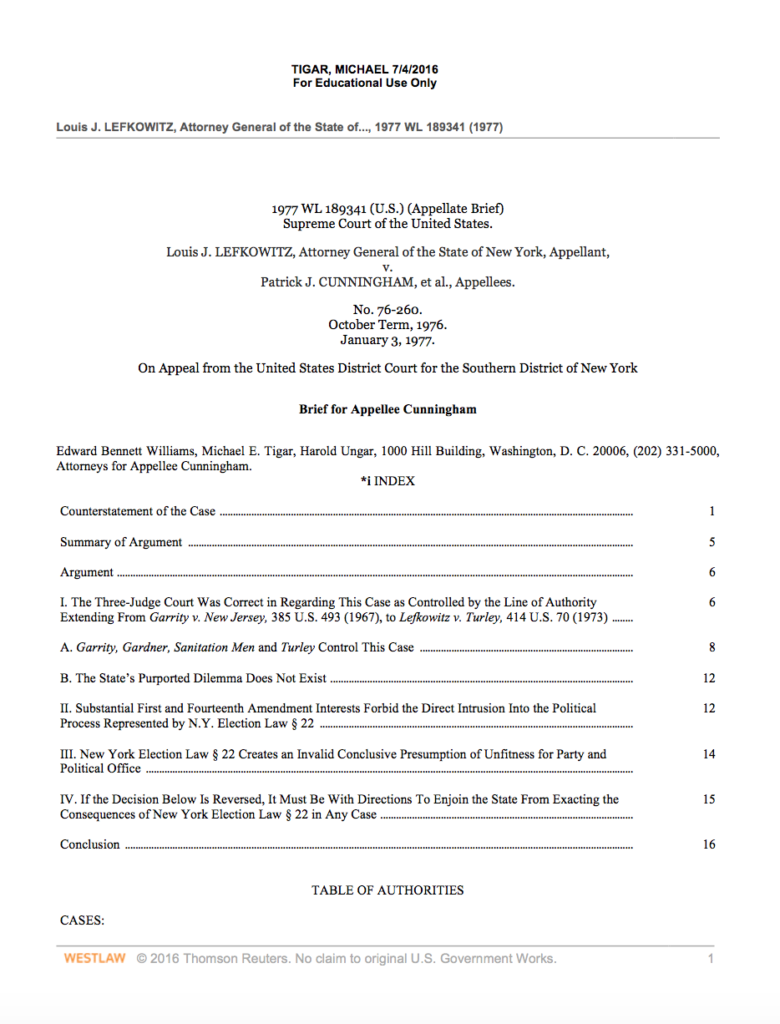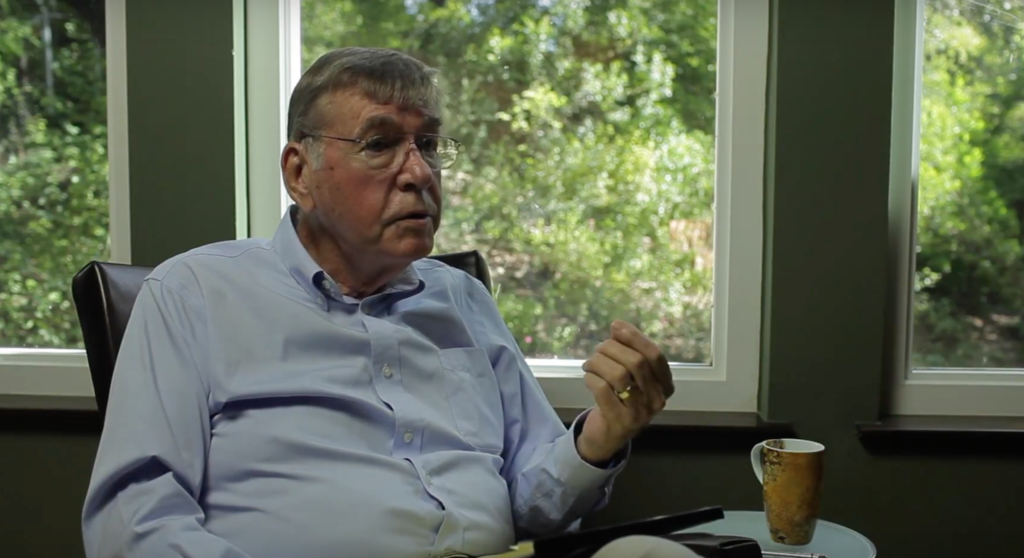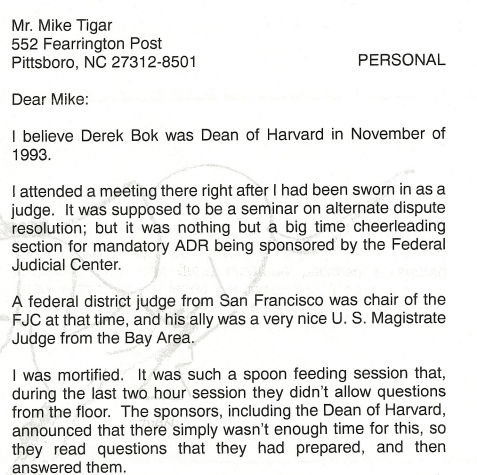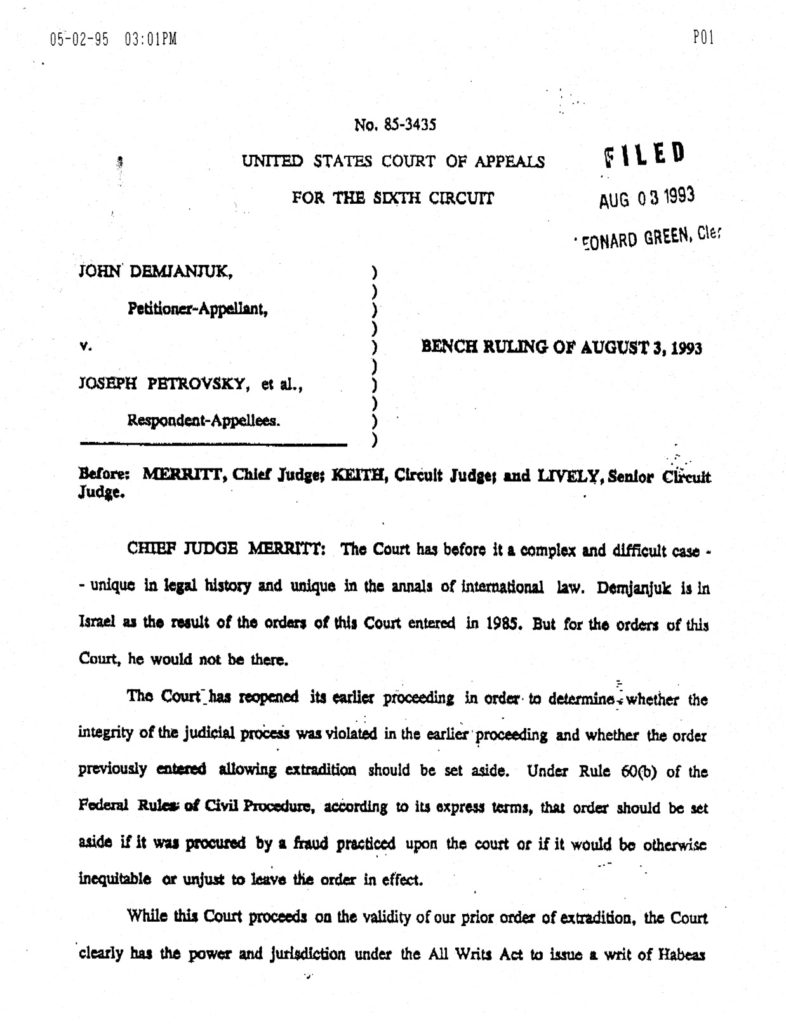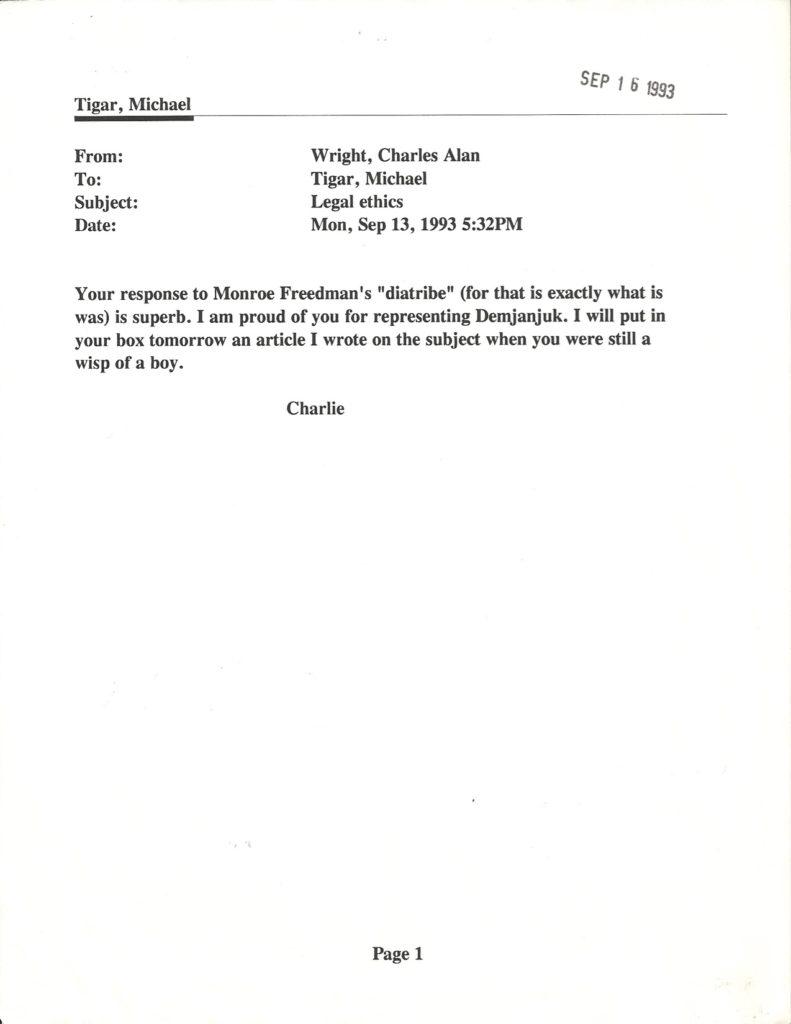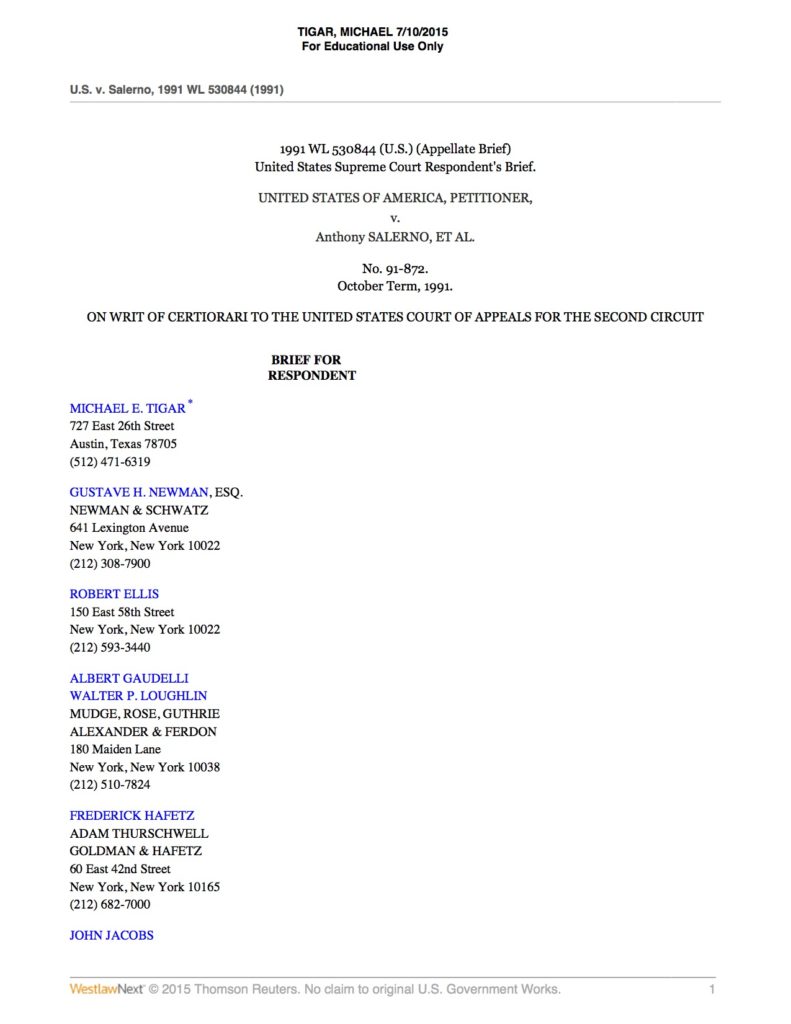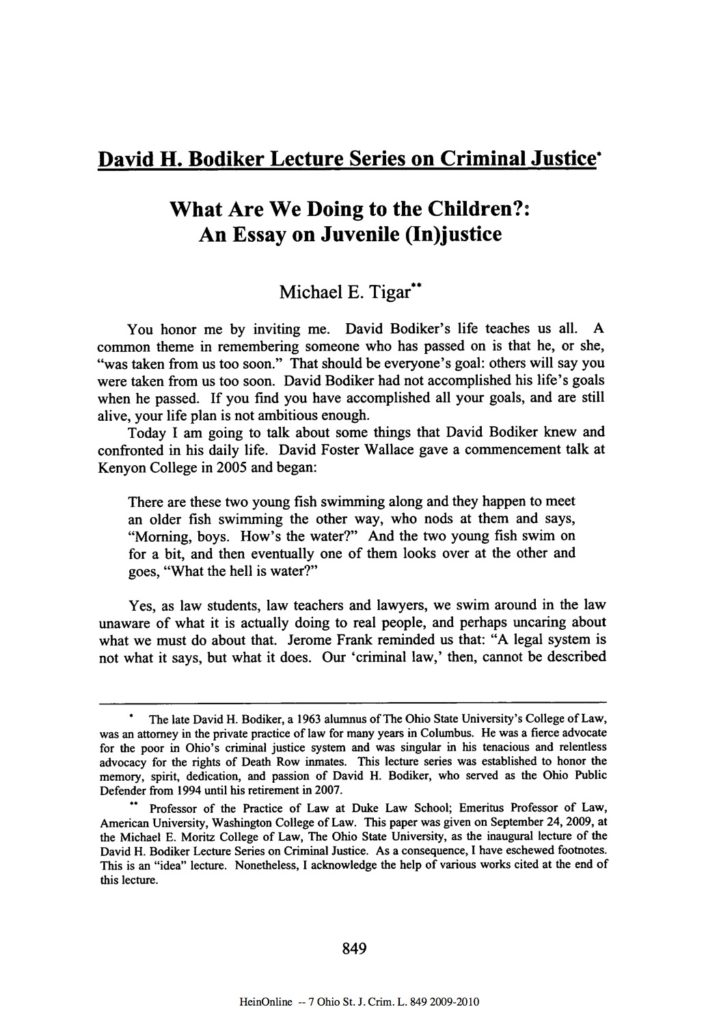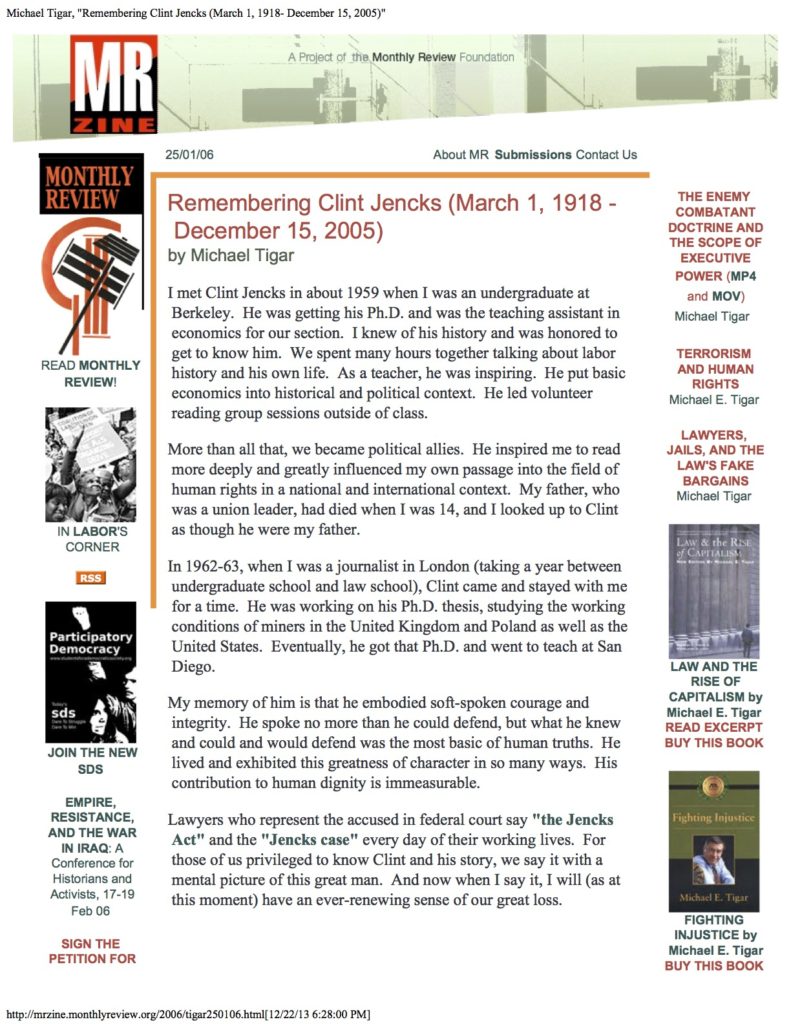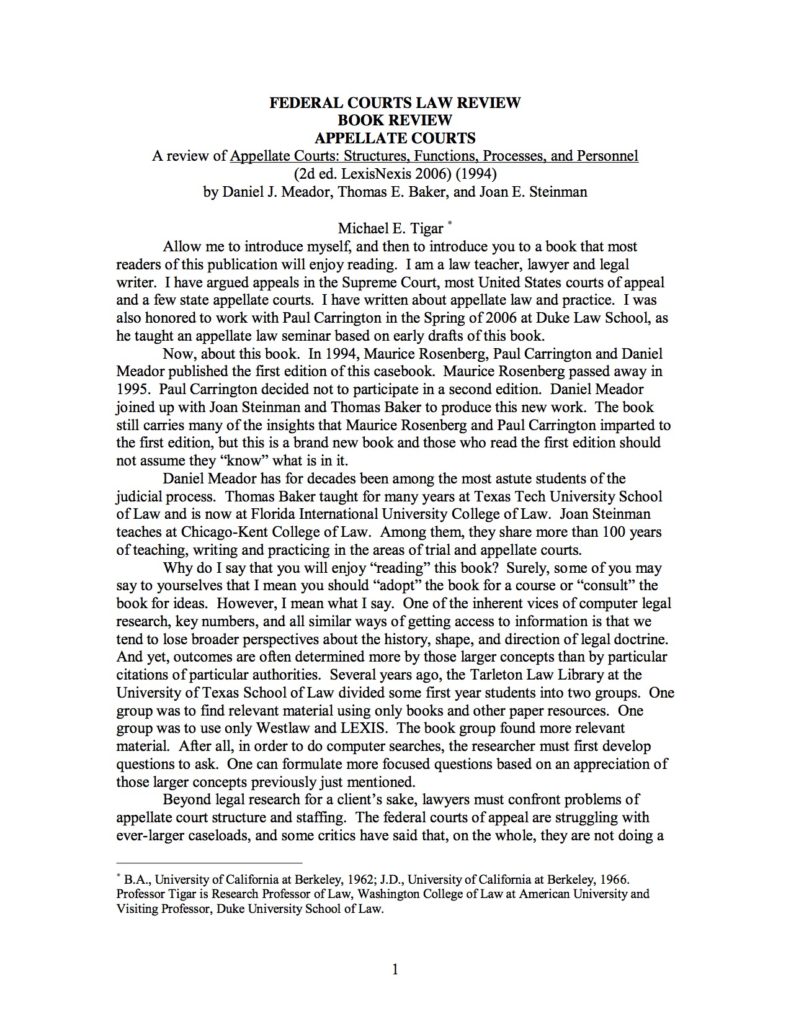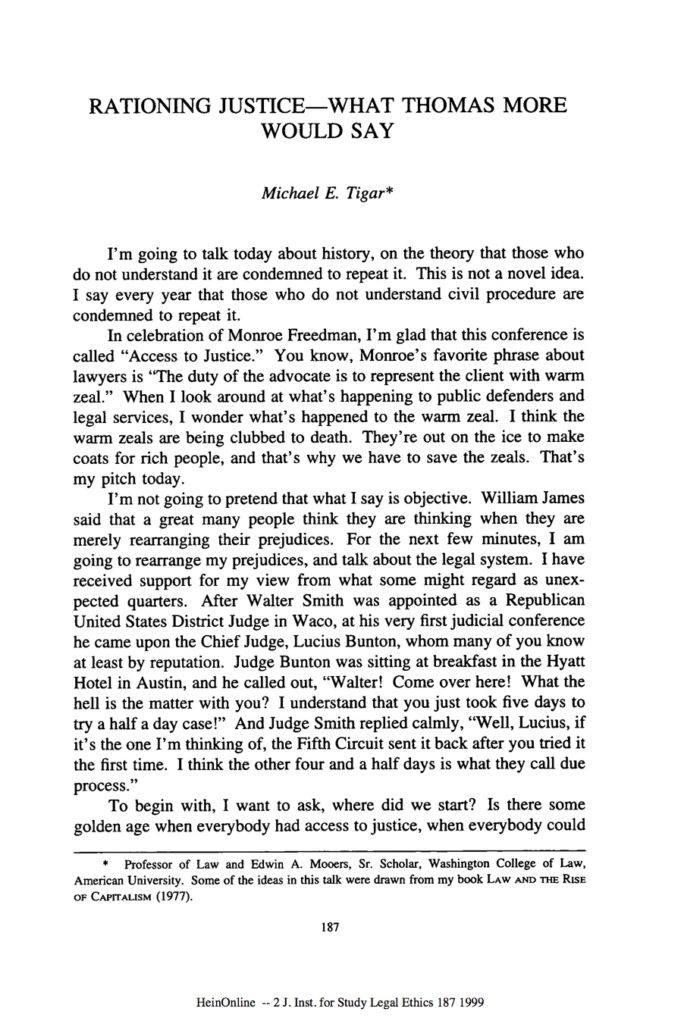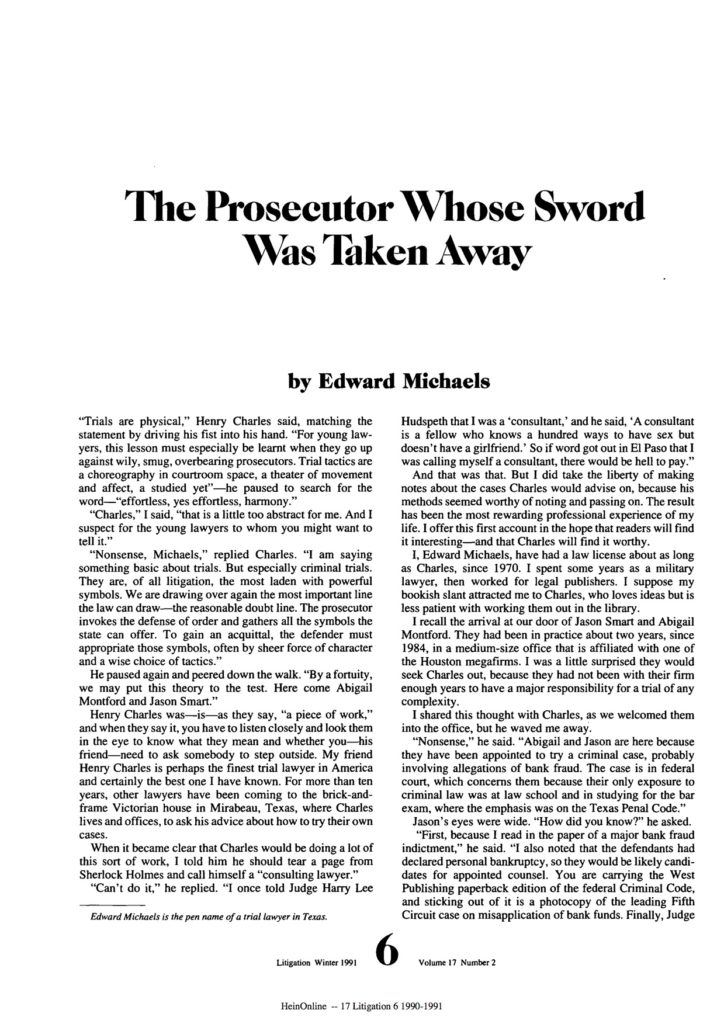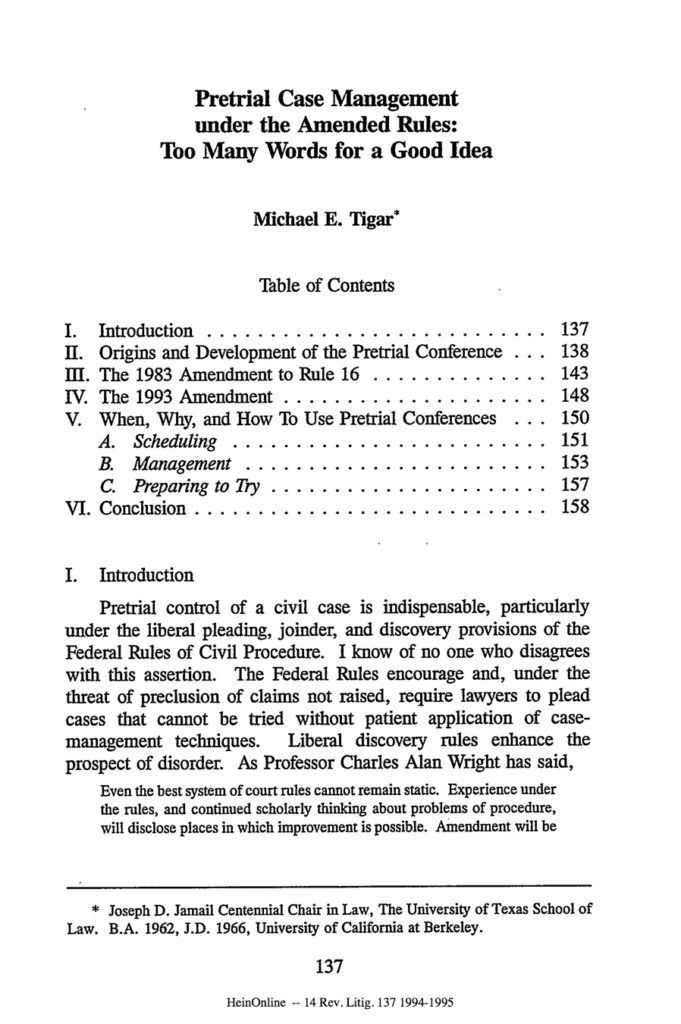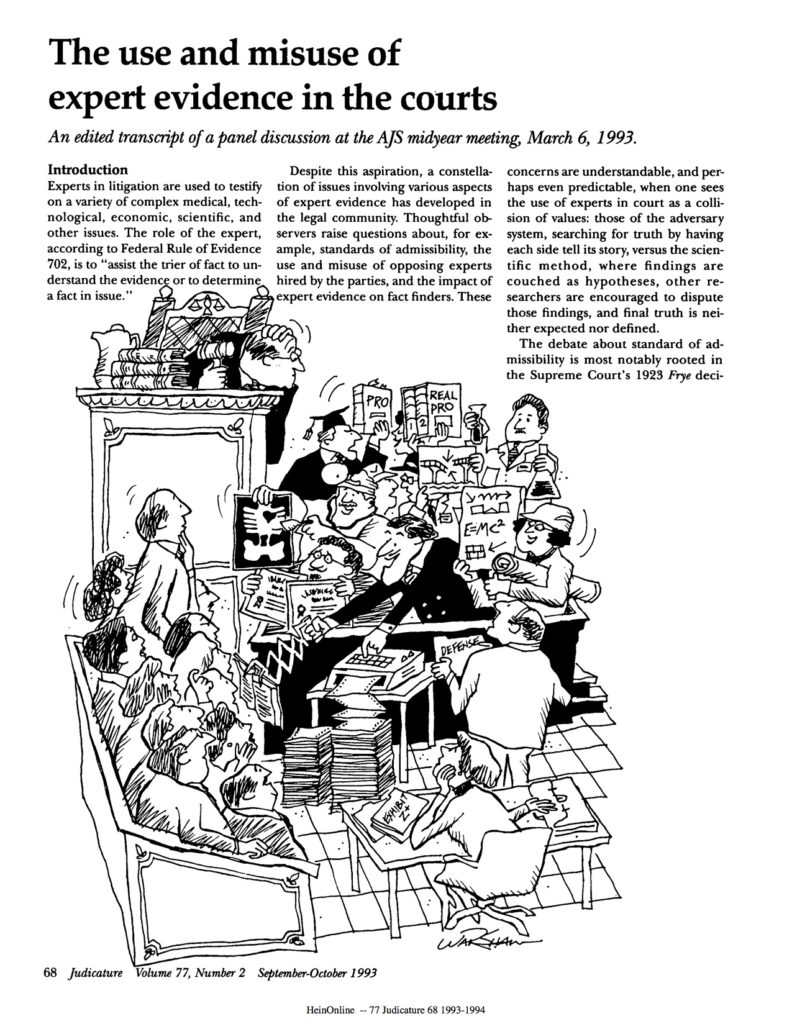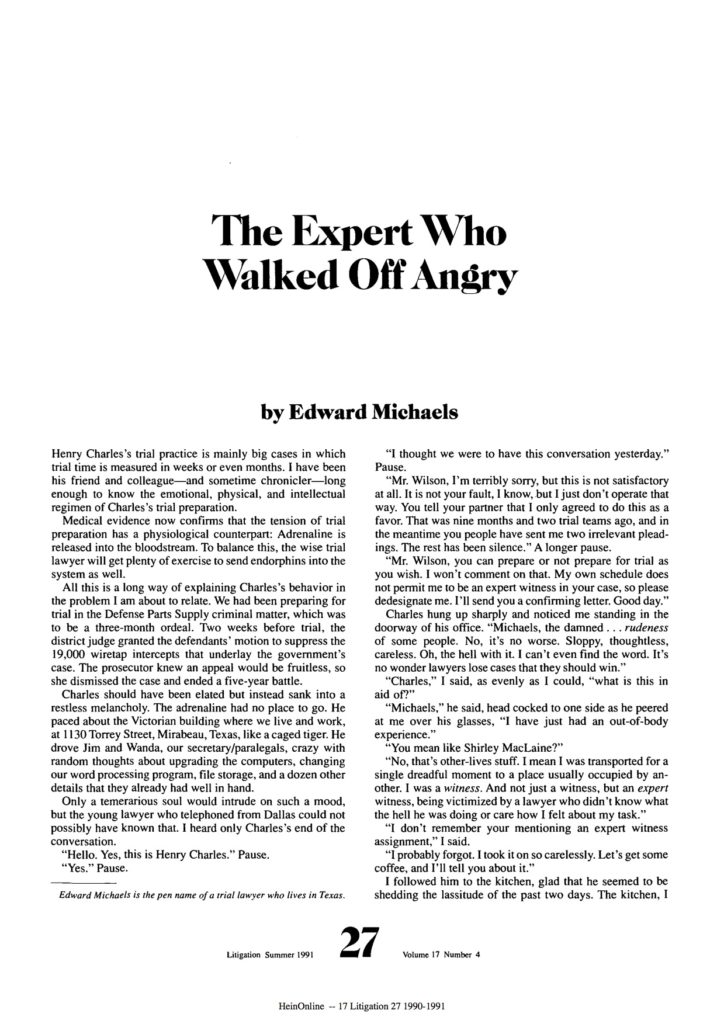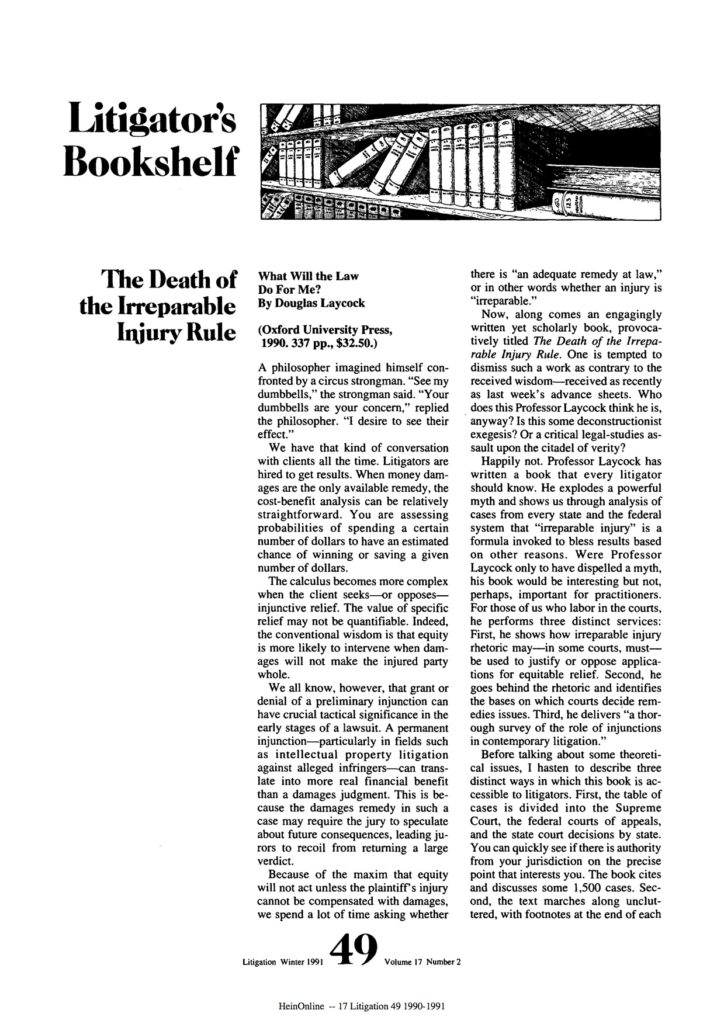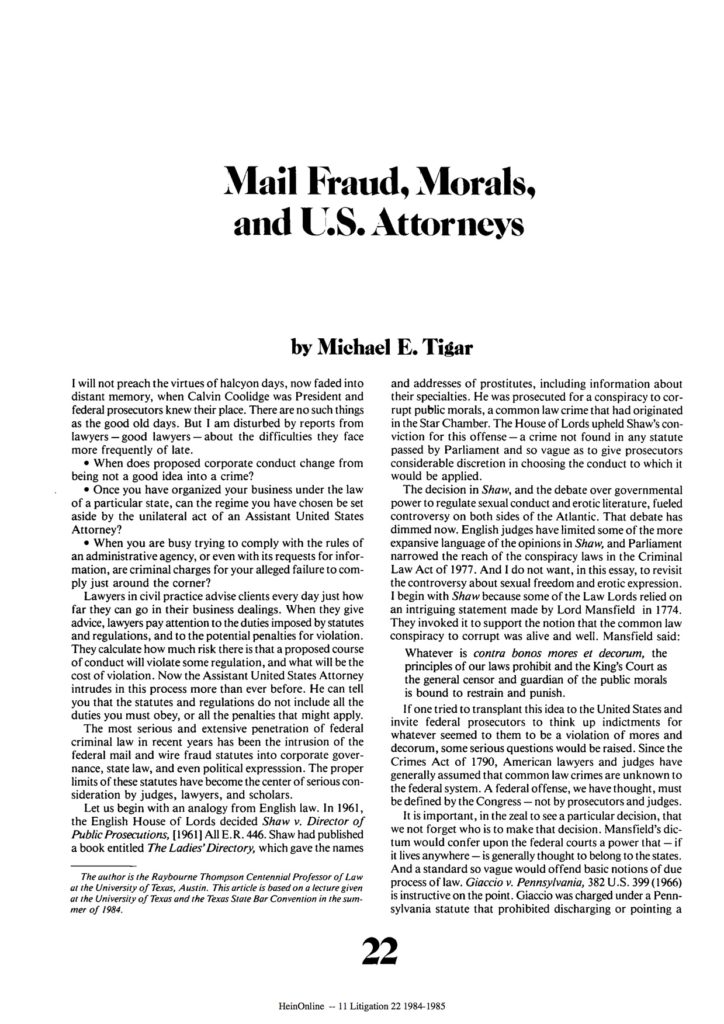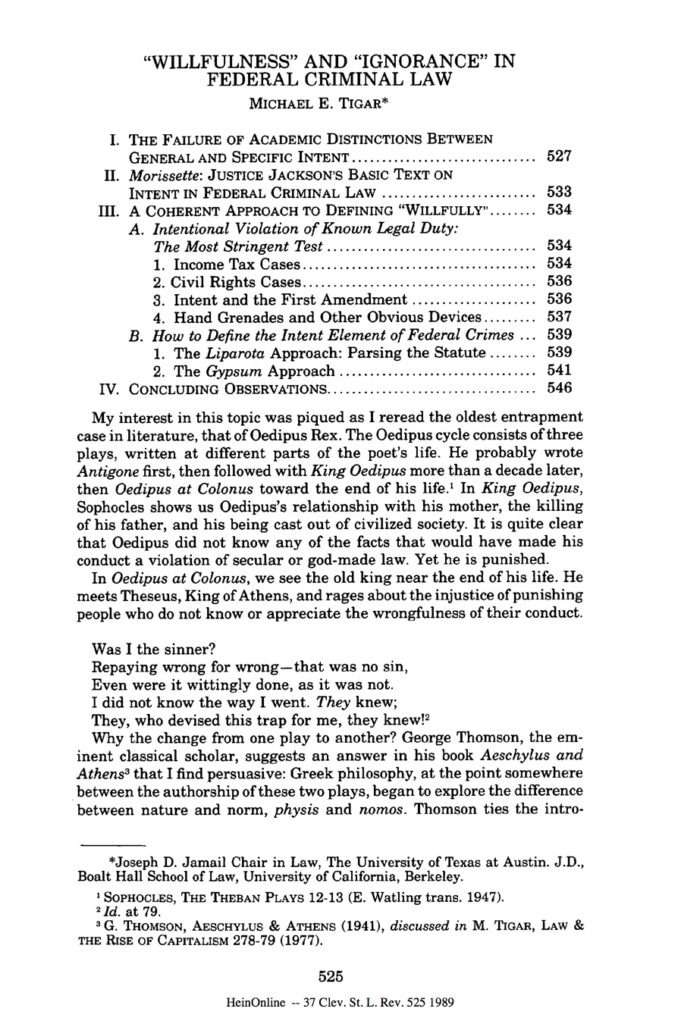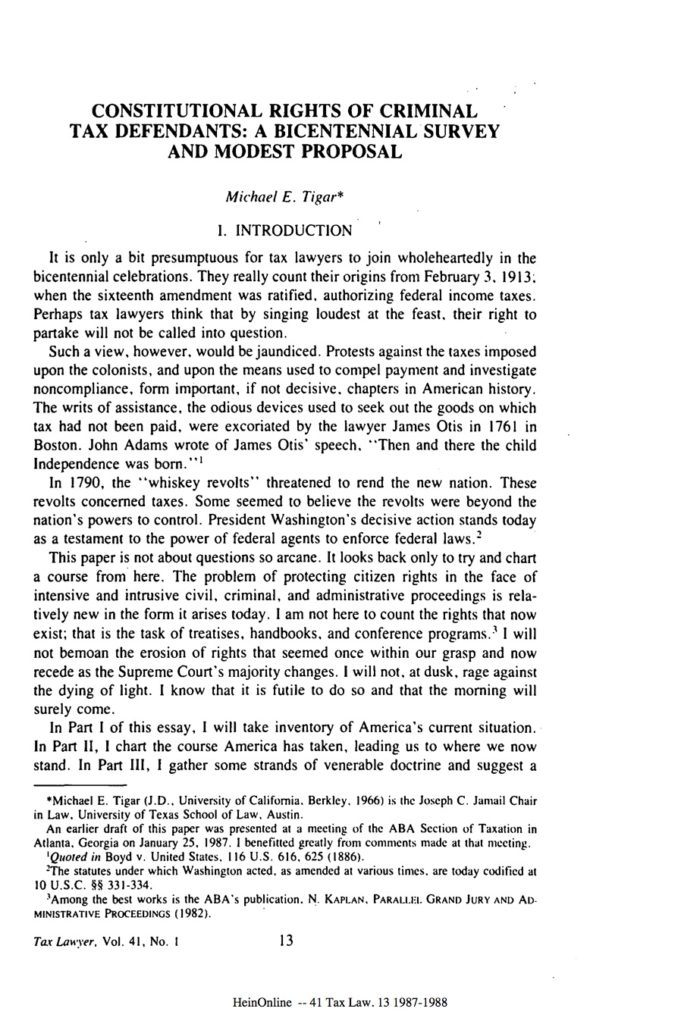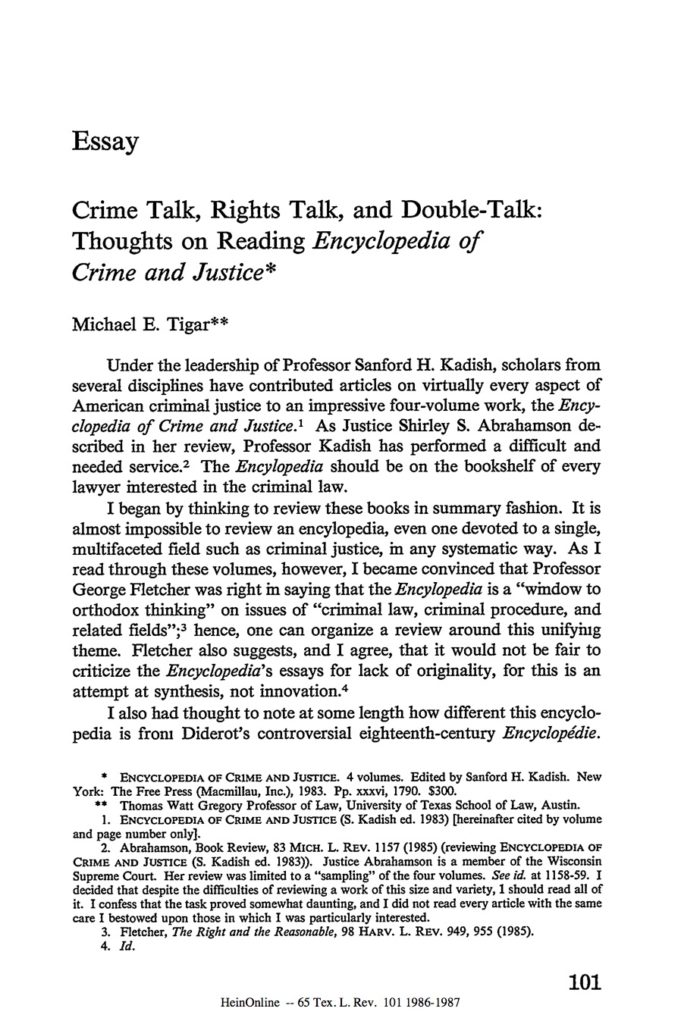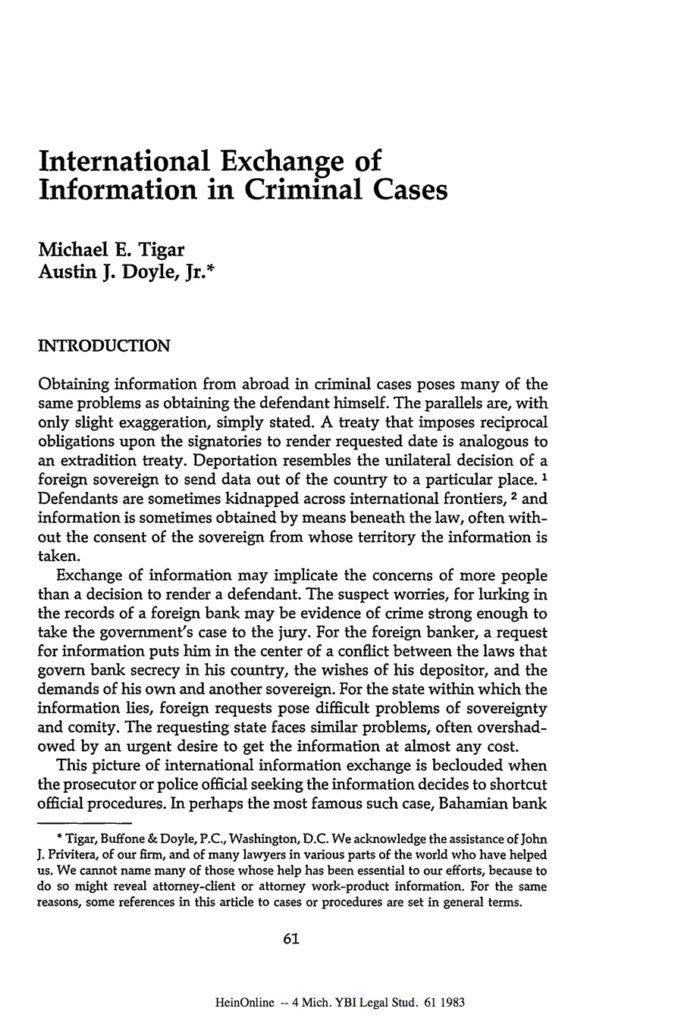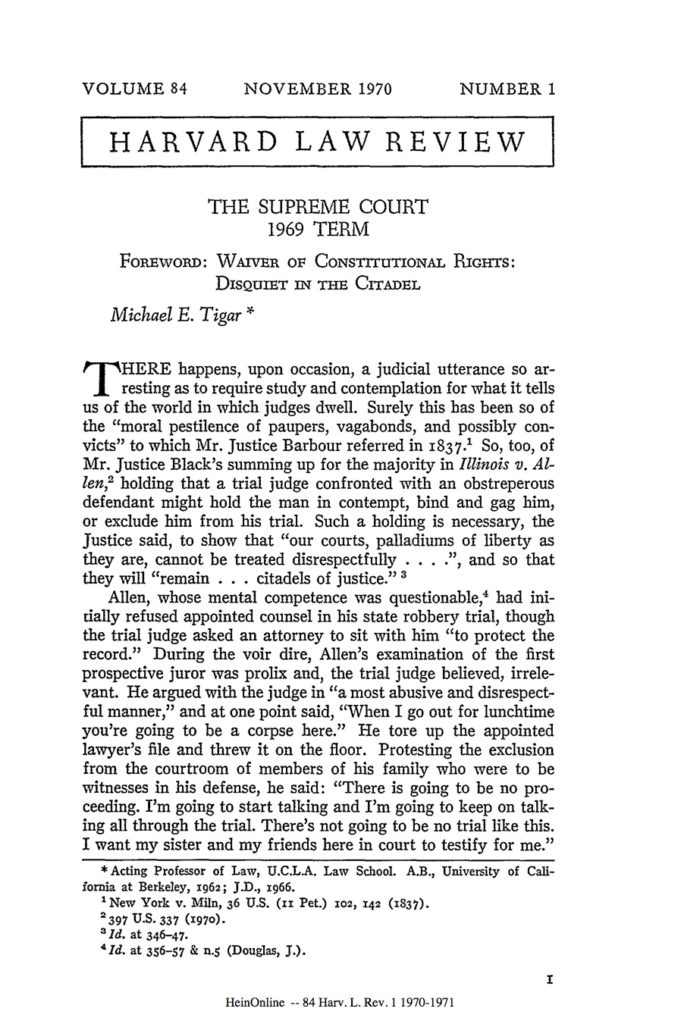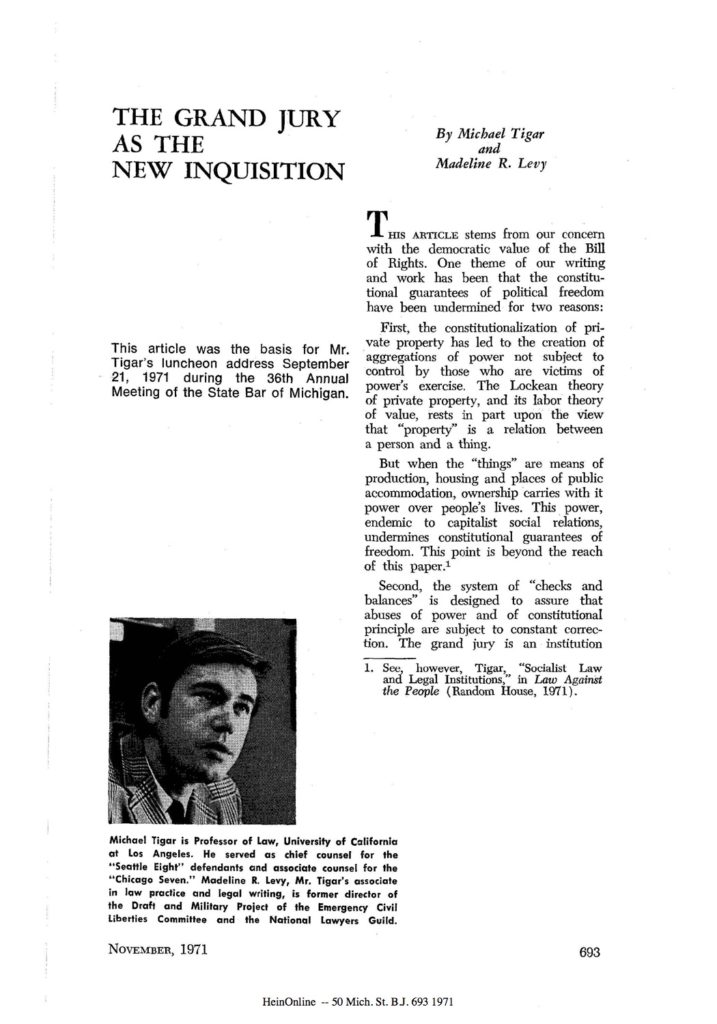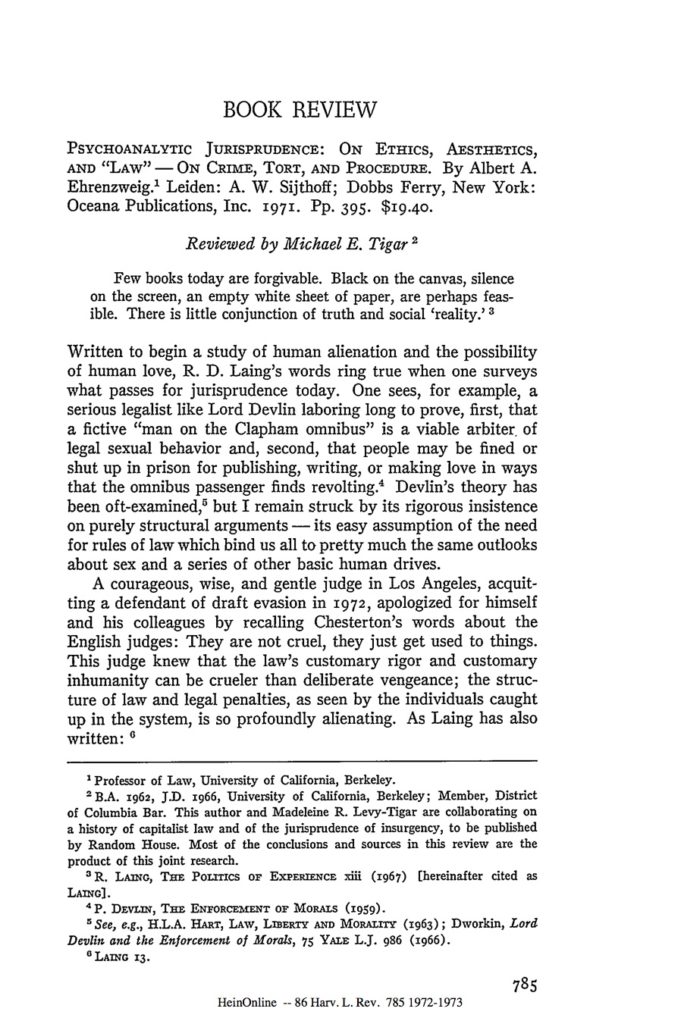Procedure
For Michael Tigar, “law is not a thing; it’s a process.” Throughout his litigation career, Tigar has obtained a wealth of knowledge about rules of legal procedure, and has learned to wield them adeptly. He has advised criminal defense lawyers, for example, to learn discovery rules “and be willing to use them in a very aggressive way” to hold government accountable.
At the same time, Tigar has challenged procedural rules and sought to affect their development and interpretation. The impetus for such challenges can be seen in his review of the 1969 Supreme Court term in the Harvard Law Review, where he wrote that, in a “judicial system in the hands of a hostile government,” procedural formalisms “mask injustice and make it easier to inflict.” Thus, he suggested, “fairness and respect for personal rights” ought to take primacy over the desire to “preserve and protect [courts] in their present condition.”
This section includes scholarly discussions of the uses of and challenges to various procedural aspects of criminal trials, from the role of the grand jury to the use of expert testimony. Tigar is clear about the substantive commitments that guide his approach. In 1971, for instance, he criticized the grand jury for its clandestine nature, use of McCarthy-era style tactics, and chilling effect on social reform movements and civil liberties.
Also included in this section are a number of items on civil procedure, including the examination of changes in rules, with an eye toward their potential to affect both the substantive outcome of the case and the exercise of rights in daily life. Such discussions can be found, for example, in relationship to the irreparable injury rule and rules about pretrial case management.
Procedure is an area that Tigar has found ripe for satire. Some of the essays included here take the form of short stories, and are authored under a pseudonym. These include “The Expert Who Walked Off Angry” and “The Prosecutor Whose Sword was Taken Away.”
The section also includes materials from several of Tigar’s cases that turn on procedural points, including his defenses of John Demjanjuk, David Gelbard, Louis Lefkowitz, and Anthony Salerno.


